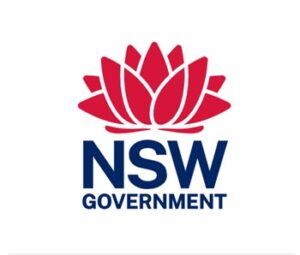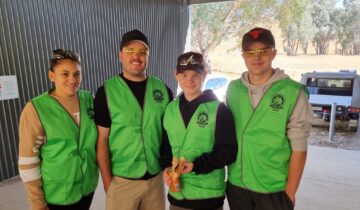These days, being a safe shooter also means being a safe web surfer. As more of our membership renewals, event registrations and communications move online, it’s important to know how to protect yourself from scams, phishing attempts and online fraud.
Unfortunately, cybercriminals target people of all ages and backgrounds — not just the non “tech-savvy”. In fact, many scams are designed to look familiar and trustworthy to catch even the most cautious person off guard.
Below are some key tips to help SSAA members stay secure online and recognise the red flags before they become problems.

Recognising a Scam or Phishing Message
Phishing is when someone tries to trick you into giving away personal information (like your password, credit card or member details). These scams can arrive via email, text, or social media.
Here’s what to look for:
- Unusual sender address – The email might look official at first glance but contain a strange domain name (e.g., safety @ssaa-support.com instead of @nsw.ssaa.org.au).
- Sense of urgency or fear – Messages like “Your account will be suspended in 24 hours” are designed to make you act fast without thinking.
- Links that don’t match – Hover over any link before clicking. If the web address looks suspicious or unfamiliar, don’t open it.
- Spelling or formatting errors – Professional organisations rarely send messages with poor grammar, missing logos, or inconsistent fonts.
Unexpected attachments – Never open attachments you weren’t expecting, even if they appear to come from someone you know.
Support Available Through ID Support NSW
If you believe your personal information has been stolen, misused or accessed without your consent, the NSW Government’s agency, ID Support NSW, provides a range of free support services for individuals, families and businesses.
Practical Steps to Stay Safe
- Use strong, unique passwords for each account. Consider a password manager to store them securely.
- Enable two-factor authentication (2FA) wherever possible. This adds an extra layer of protection, even if your password is stolen.
- Keep your software and devices up to date. Updates often patch security vulnerabilities.

- Back up important files (including documents and photos) to an external drive or cloud service.
- Don’t overshare online. Personal details like your date of birth, address, or club location can be used for identity theft or social engineering.
If You Think You’ve Been Targeted
- Don’t panic. Close the message or browser immediately.
- Do not click links or provide any information.
- Change your password for any affected account as soon as possible.
- Report the incident: Forward phishing emails to report@phishing.gov.au
or report to Scamwatch (www.scamwatch.gov.au). - Let your Branch or the SSAA NSW Office know if the message claimed to be from us.
Run a virus scan and keep your device updated.

Stay Alert, Stay Informed
The SSAA NSW team will never ask for your password or personal financial details via email or text. If you receive something that doesn’t look right, please reach out — it’s always better to double check before you click. By staying alert, updating your knowledge, and taking a few extra precautions, you can help protect not only yourself but also your fellow members and the broader SSAA NSW community.



